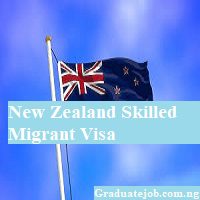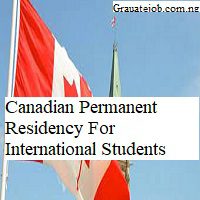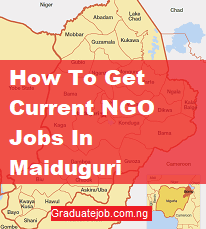The New Zealand Skilled Migrant Visa is a popular immigration route for those with in-demand skills and certifications in New Zealand. This visa aims to recruit highly talented professionals who can contribute to the country’s economy and society.
The Skilled migrant category evaluates candidates using a points-based system based on age, qualifications, job experience, and English language fluency. Successful applicants can live and work in New Zealand permanently, taking advantage of the country’s high standard of living, magnificent natural beauty, and various cultural experiences.
READ MORE: Digital Nomad Visa: All You Should Know
Eligibility criteria for the New Zealand skilled migrant visa
The New Zealand Skilled Migrant Visa eligibility criteria assess applicants’ skills, qualifications, and qualities to migrate to New Zealand. The following are some of the essential elements of the eligibility assessment:
1. Age: To be eligible for the visa, you must be under 56. Points are assigned based on age, with applicants between 20 and 39 receiving the most points.
2. Qualifications and skills: The visa requires candidates to have skills and capabilities in high demand in New Zealand. The applicant’s skills are evaluated based on their work experience, qualifications, and whether they have a skilled occupation on the Long Term Skill Shortage List (LTSSL) or the Immediate Skill Shortage List (ISSL).
3. Work experience: Applicants must have relevant work experience in the occupation they are applying for. The number of points awarded depends on the number of years of work experience, with higher points awarded for work experience obtained in New Zealand.
4. English language proficiency: To be eligible for the visa, you must have a specific English language proficiency level. The applicant’s performance in an approved English language test, such as IELTS, earns them points.
5. Health and character: Applicants and their families must complete health and character standards, including medical exams and police clearance certifications.
6. Points system: The New Zealand Skilled Migrant Visa eligibility assessment is based on a points system. To be eligible, applicants must obtain a certain number of points. Age, degrees, work experience, employment offers, and adaptation criteria such as previous study or work experience in New Zealand all contribute to the allocation of points.
It is important to note that the eligibility conditions for the New Zealand Skilled Migrant Visa may vary over time. Therefore it is critical to consult the official immigration website of New Zealand or seek expert guidance for the most up-to-date information.
READ MORE: How To Apply For Spain Digital Nomad Visa
Benefits of the New Zealand skilled migrant visa
1. Work and live in New Zealand: The visa allows applicants and their families to stay in New Zealand for a long time. This provides an opportunity to enjoy the country’s high quality of life, gorgeous landscapes, and dynamic culture.
2. Education and healthcare: Visa holders in New Zealand can access high-quality education and healthcare systems. They can enroll their children in public schools and use public healthcare, assuring their own and their family’s well-being.
3. Employment possibilities: New Zealand’s economy is strong and diverse, with numerous job possibilities in many industries. Visa holders can research job opportunities, including prospective job offers from New Zealand firms.
4. Social security benefits: Once qualified, visa holders may be eligible for some New Zealand government-provided benefits. These advantages include financial help, healthcare subsidies, and other forms of assistance.
5. Pathway to permanent residency: The New Zealand Skilled Migrant Visa provides a route to permanent residency in New Zealand. After a defined period, usually two years, visa holders can apply for permanent residence. This status confers additional rights and privileges, including the opportunity to reside and work in New Zealand without regard to temporal constraints.
6. Citizenship: Permanent residents who meet the qualifications may eventually seek New Zealand citizenship. Citizenship confers extra benefits such as the opportunity to vote, access to a New Zealand passport, and improved security.
READ MORE: Understanding The New Florida Immigration Law
Occupation lists and skill shortages in New Zealand
Occupation Lists and Skill Shortages are essential to the New Zealand Skilled Migrant Visa program. These lists assist in identifying high-demand occupations and prioritizing qualified persons who can contribute to New Zealand’s economy. Here is a list of occupations and skill shortages:
1. Long-Term Skill Shortage List (LTSSL): Occupations on this list are in high demand in New Zealand. Occupations on the LTSSL are highly valued, and persons with these talents are given priority in the visa application process. Meeting the requirements of a job on the LTSSL can result in extra points for your immigration application.
2. Immediate Skill Shortage List (ISSL): The ISSL includes vocations in high demand in New Zealand. It reflects places where skilled workers are in short supply. Having an occupation on the ISSL might improve your chances of getting a job offer and may also award you with extra points during the visa application process.
3. Skill shortages: Skill shortages occur when a considerable disparity exists between the demand for skilled workers and the available workforce. These shortages can arise in various areas, including healthcare, engineering, information technology, construction, and agriculture.
READ MORE: How To Apply For A Non-Qualified Mortgage
Final thoughts
If an applicant’s occupation is on the LTSSL or the ISSL, it can significantly help their visa application. These occupations may provide additional points toward the eligibility criterion, raising the overall points score. Furthermore, having a job on the list may improve career prospects and increase the likelihood of finding work in New Zealand.
It is crucial to note that occupation lists and skill shortages are dynamic and are revised regularly to match changing labor market needs. As a result, applicants should stay up to speed on the most recent occupation list information and verify that their skills and certifications are in line with the current demand in New Zealand.






